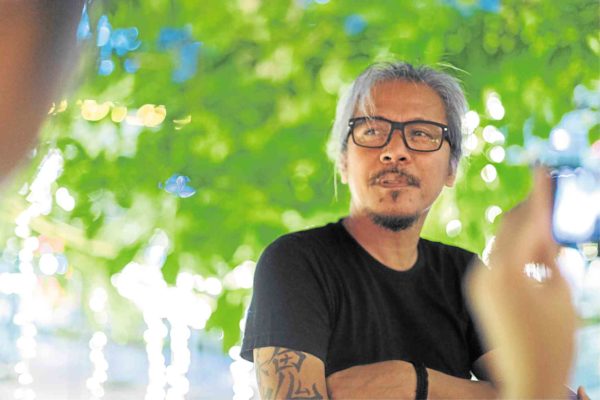Forum on MMFF 2017 fracas
Months before the Metro Manila Film Festival (MMFF), which is held annually in December, controversies have once again erupted over the first batch of entries for its 2017 edition.
This year, the rules committee has decided to divide the selection process of the eight entries into two: based on screenplays and finished films.
Last Friday’s announcement of the first four entries, which were chosen based on submitted scripts, led to another dispute, made more contentious by the resignation of three executive committee members: Kara Magsanoc-Alikpala (on June 12), Roland Tolentino (June 30) and Ricky Lee (July 1).
The Inquirer asked various industry insiders to weigh in on the raging issue.
Jose Javier Reyes, filmmaker. Should I be surprised? Not! That’s why there is the Pista
ng Pelikulang Pilipino, Cinemalaya, Cinema One, ToFarm, QCinema, CineFilipino and the other festivals. There are films as there are movies. And there is the audience.
The MMFF is a movie fiesta. Let it be known as such. As long as the establishment is there, it can never be a film festival. And no amount of good intentions can reform the MMFF, unless we educate the audience. You cannot force viewers to shell out P200 and tell them which films to watch.

Joey Reyes
Ronald Arguelles, channel head, Cinema One. I have no problem with including big studio films in the lineup, but a consistent festival rule should be established and it should apply to all entries. I want to see honest-to-goodness (and unpretentious) objectives that are clear to everyone. It was quite confusing this year.
Perci Intalan, filmmaker. The MMFF is always controversial, isn’t it? But that’s what makes it exciting! I know the four titles were thoughtfully chosen. And I am sure the producers and directors behind these projects will keep the lessons from past festivals in mind and give audiences their best.
Chris Millado, artistic director, Cultural Center of the Philippines. I totally loved not only four, but all the eight choice films in last year’s MMFF. There was a clear and determined effort to institute real change by screening films that were excellent, thought-provoking and accessible to the broadest audiences.
Joel Lamangan, filmmaker. A total revamp was the goal last year. Now, it’s back to commercial viability. I’ve always been a proponent of a festival meant for the Christmas season—a fest of genre films that are meticulously and artistically made. Something like Fantasporto in Europe. Serious films are always at the tail end of the box-office race.
Let’s face facts: The theater owners, distributors and producers decide which films will get shown in the festival. As an alternative, there should be a festival for art films that tackle noteworthy subjects, set perhaps in the middle of the year or months before the December festival.

Joel Lamangan
Louie Ignacio, filmmaker. The selection committee should first explain how these four films got in. What were the basis and criteria? If all the critics would come out with their opinions, the disagreements will never end … because each one of us has his or her own preference. Whether indie or mainstream, quality should be the priority.
The final output of the first four films should still be assessed by the jury, though. The committee should have the option to reject an entry if it fails to meet the standards of the festival. In short, walang palakasan (no preferential treatment) to avoid controversies.
Avid Liongoren, filmmaker. We should consider the fact that half of last year’s entries were produced by seasoned commercial studios: Regal, Star Cinema, Quantum and Reality. It’s really not about mainstream versus indie. I just wish they had stuck to last year’s very logical rule that only completed films should be considered for the eight slots. It’s like a pie-making contest, and half of the finalists are picked by reading recipes instead of tasting the actual pies.
Allan Michael Ibañez, filmmaker. I am a big fan of MMFF’s 2016 edition. There were a lot of fresh Filipino stories that were showcased on the big screen. The filmmakers should be commended for creating films with unique insights and powerful messages. However, it’s sad that the same old producers and stars are back this year. Can’t we come up with new ways of storytelling and entertaining the masses?
I am still praying for the day when everyone will be given a fair chance in the industry because the MMFF should reflect our stories and experiences as Filipinos. It’s our social responsibility.
Randolph Longjas, filmmaker. It is the right of these production companies to field entries. They’ve been part of the festival for the longest time, and they have already created a sure market. However, I hope the selection committee will choose a variety of quality films—mainstream or indie.
I am more concerned, though, about the change of rules. If we go back to the old process, last year’s reforms would go to waste. Last year’s lineup was really good. I don’t see the point of not doing it again this year and the coming years.
Shandii Bacolod, producer. As Roland Tolentino posted on Facebook: “Some old habits are hard to break.” Maybe it’s really difficult, but the thing about “change” is that we can only achieve it if we are truly united. I’d like to believe that we, the audience, are ready for a major overhaul. We should not be afraid of reforms.
Since the announcement of entries is in two parts, the first four entries can promote ahead of the others. Also, the first four entries were chosen because they stood out among 29 submissions. Do they automatically qualify in the best screenplay category then?
Madonna Tarrayo, Unitel president. I believe that a great and significant film remains so, whether mainstream or independent. As producers, we owe it to our audience to give them the best stories we can, regardless of the studio or company we belong to—but, of course, always with excellent technical and production values. Personally, I am looking for consistency in terms of objective and policy.
Chuck Gutierrez, film editor. All we want is a festival of Filipino films that we can be proud of. It doesn’t matter if these movies are mainstream or indies. Films that champion the Filipino spirit among our countrymen … that’s the ultimate dream.
Lav Diaz, filmmaker. Last year’s edition was a miracle and could have been a watershed, but was sadly cut short by shortsightedness … very much emblematic of our penchant for endless cultural debacles. MMFF 2016 will be remembered like 1976, but in a bittersweet way.
The year 1976 was the greatest epoch of the MMFF, and may never be equaled. It shall remain the greatest paradigm of what that festival can achieve if the greater purpose of cinema is given more importance.
The 2016 edition will be remembered as an epoch of promise and regret. Sayang talaga. Ang ganda na sana ng simula. Pero heto na naman tayo. (It’s a pity. It was a beautiful beginning, but here we go again.)

Lav Diaz